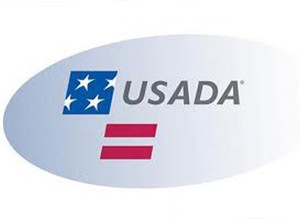Suspicious Tour de Suisse 2001 tests led to ‘inappropriate’ meeting
 USADA chief Travis Tygart has said that Martial Saugy, the head of the Lausanne laboratory which detected a suspicious sample from Lance Armstrong in 2001, has conceded that he gave the rider information which could subsequently have been used to beat anti-doping tests.
USADA chief Travis Tygart has said that Martial Saugy, the head of the Lausanne laboratory which detected a suspicious sample from Lance Armstrong in 2001, has conceded that he gave the rider information which could subsequently have been used to beat anti-doping tests.
Tygart spoke about the issue during a ’60 Minutes Sports’ interview screened last night on the Showtime Network. He said that Saugy met with Armstrong after the rider’s suspicious test for EPO during the 2001 Tour de Suisse, which he won.
“Saugy sat down next to me and said, ‘Travis, in fact, there were samples from Lance Armstrong that indicated EPO use,'” Tygart said during the programme.
“And I asked him ‘Did you give Lance Armstrong and Johan Bruyneel [Armstrong’s then manager on the US Postal Service team – ed.] the keys to defeat the EPO test?’ And he nodded his head yes.
“As far as we are aware it is totally inappropriate to bring an athlete who had a suspicious test and explain to them how the test works.”
Tygart said that Saugy said he had been instructed by the UCI to meet Armstrong and Bruyneel and to explain the EPO testing process to them.
In doing so, the duo could have learned about the timeframes about when the substance can be detected, plus other details.
Saugy has previously denied that the level of EPO in the sample was high enough to trigger a positive test under the requirements in place at the time, although he has said that the levels detected made him suspicious.
Tygart also commented on the six samples taken during the 1999 Tour de France which were retested in 2005. “All six were flaming positive,” he told the programme, making it clear that he believed the rider had cheated during his first Tour win.
As was previously reported, the USADA chief told 60 Minutes Sports that Armstrong had offered a sum of money in the region of $250,000 to the agency in 2004. He described that as completely inappropriate.
“I was stunned,” Tygart told his interviewer Scott Pelley. “It was a clear conflict of interest for USADA. We had no hesitation in rejecting that offer.”
Armstrong’s lawyer Tim Herman has said the claim is untrue. The Texan will speak about his career to Oprah Winfrey next week, a move which many predict will be an admission of doping.